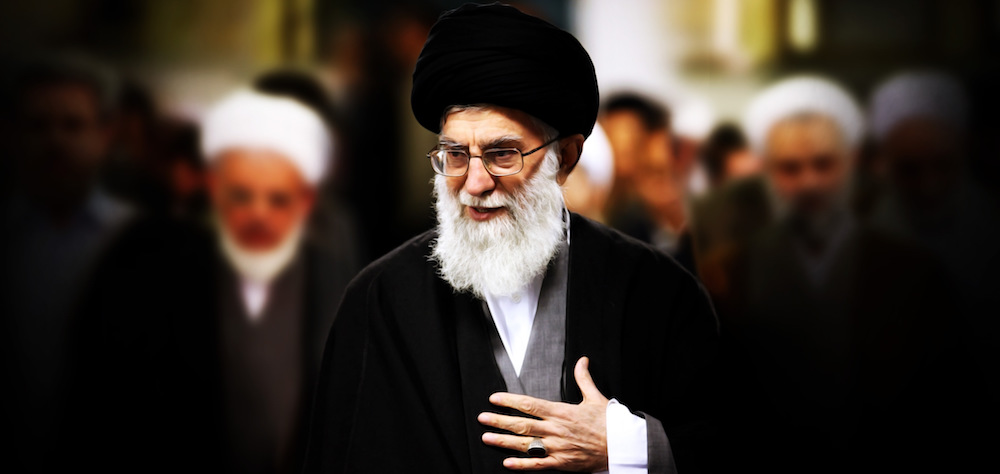Alwaght- Leader of Islamic Republic of Iran Ayatollah Sayyed Ali Khamenei said on Saturday that Saudi Arabia sooner or later will collapse due to ruling regime's wrong domestic policies as well as its interventionist approach towards regional states, particularly Bahrain and Yemen.
Pointing to Al Saud crimes against Bahraini and Yemeni people, Iran's Supreme leader said, “Those who commit such measures against Muslims are illegitimate and the illegitimate will certainly face decline and collapse. Of course, the time of their doom depends on how the faithful will act and if the faithful society acts correctly, the destruction of the illegitimate will occur sooner.”
Saudi Arabia has launched a deadly aggression against Yemeni nation since 17 march 2017, killing over 12,000 people and injuring and displacing hundreds of thousands.
The Oil-rich Arab state has also spared no effort, including deploying troops, to Help Bahraini regime crackdown on majority Shiites who have launched pro-democracy protests since 2011.
"They (Saudi leaders) act cordially towards the enemies of Islam while having the opposite behavior towards the Muslim people of Bahrain and Yemen," Iranian leader said.
Ayatollah Khamenei also touched on Al Saud unwise internal policies, saying that Al Saud spends oil income for their own favor or present them to foreigners instead of spending the national wealth on "the improvement of their people’s livelihood."
Saudi Arabia, world top oil exporter, has recently inked arms deals worth 350 billion dollars with the US.
The Iranian leader hinted that while Saudis aim at winning western powers, particularly the US, support by money in order to guarantee their dictatorship, Americans , as they have already admitted, only seek to "milk them and after they run out of milk will slaughter them ".
Islamic revolution leader also rebuked the Saudi rulers as simpleminded people who believe in the Quran only in appearance but act in contravention of its teachings.
"Unfortunately today, the Islamic society, like other societies, has faced problems and the fate of some Islamic societies is in the hands of incompetent individuals like [those] in the Saudi government.
"These individuals believe in the Quran in appearance and even print millions of copies of the Quran but they are in practice intimate with infidels contrary to Quran's stipulations," Ayatollah Khamenei said.
Emphasizing that Al Saud dynasty is doomed to downfall, Iran Supreme leader stated that the time of its collapse depends on the actions of Muslims, adding that if the Muslim world acts correctly, their collapse would be accelerated.
Americans predict Saudi Arabian collapse
A former senior of the United States official in 2016 suggested the Saudi Kingdom is on the verge of collapse and that Washington is already prepared for that moment.
The American Defense One website has published a report entitled "Start preparing for the collapse of Saudi kingdom" in which the authors, asked the US administration to be ready to the next stage that will witness the fall of the Al-Saud regime.
The report, authored by Sarah Chayes -- former Chancellor of the chairman of the US Joint Chiefs of Staff and participant in Carnegie Foundation -- and Alex de Waal -- researcher, academic and an expert on Arab and African Affairs -- revealed that the decision-makers in Washington have already begun planning for the stage of the Saudi Kingdom collapse.
The report argued that Saudi Arabia is not a real state, but rather "a political enterprise with a clever but ultimately unsustainable business model, as if the Saudi king is CEO of a family business that converts oil into payoffs that buy political loyalty. They take two forms: cash handouts or commercial concessions for the increasingly numerous scions of the royal clan, and a modicum of public goods and employment opportunities for commoners."
Regarding the second form of buying political loyalties, the report by Defense One - known for its close relations with the US Defense Department, indicated a "highly educated Sunni majority, with unprecedented exposure to the outside world, is unlikely to stay satisfied forever with a few favors doled out by geriatric rulers impervious to their input."
The authors asked what if "the price of political loyalty" rises, where the political market functions according to demand as well as supply, particularly when such fears accompany an expanded oil production in the face of such low prices, which may reflect an urgent need for revenue as well as other strategic imperatives.
The oil policy, which was adopted in Riyadh in the past months, unfolds the inability of the Saudi regime to continue with the game.
The report also notes that for decades, Riyadh has eased pressure by exporting its dissenters—like Osama bin Laden—fomenting extremism across the Muslim world. But that strategy can backfire: bin Laden’s critique of Saudi corruption has been taken up by others and resonates among many Arabs. And King Salman has reached for some of the familiar items in the autocrats’ toolbox: executing dissidents, embarking on foreign wars, and whipping up sectarian rivalries to discredit Saudi Shiite demands and boost nationalist fervor. Each of these has grave risks.
The authors conclude by saying that there are a few ways things could go, as Salman’s brittle grip on power begins cracking.
One is a factional struggle within the royal family, with the price of allegiance bid up beyond anyone’s ability to pay in cash. Another is foreign war. With Saudi Arabia already in engaged in Yemen and Syria war, escalation is too easy. A third scenario is insurrection—either a non-violent uprising or an insurgency—a result all too predictable given episodes throughout the region in recent years.



























